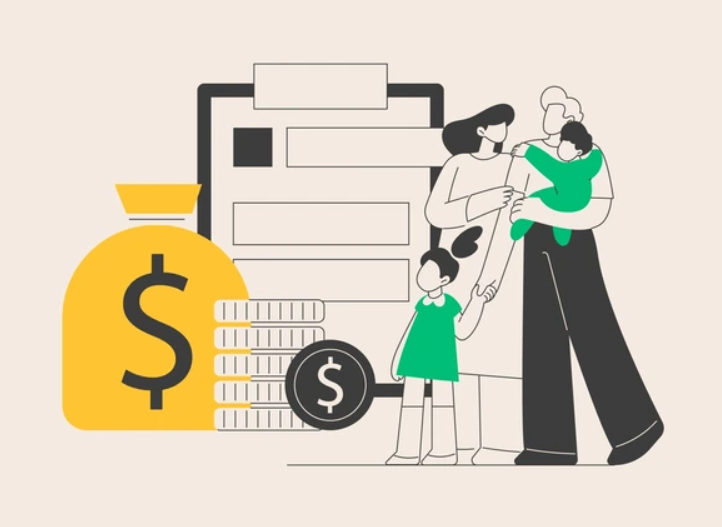Society is changing rapidly nowadays with the introduction of new technology. People are marrying robot wives and husbands. If someone can marry a robot, why can’t they have robot children?
Table of Contents
Interesting, people can adopt robot children through a legal process. Now, the question is: do the parents of the robot child get to enjoy the full benefits of adopting their child? Talk about tax credit, adopting subsidies, and educational support.
Robots are now becoming a part of families, raising more legal questions about adoption and its related benefits. In this piece, you will discover whether or not you can adopt a robot and claim tax credits, as well as other legal issues about child adoption and robot children.
What is a child in legal terms?
A child is a person below the age of 18.
In family and customary law, a child often means the biological or adopted child of one or both parents, typically under 18, though some places extend this to 21 if the person is still in college.
Article 1 of the United Nations Convention on the Rights of the Child defines a child as every human being below the age of 18, unless the law applicable to the child says otherwise.
What is the Child Tax Credit?
The Child Tax Credit is a tax benefit given to parents or guardians to reduce the cost of raising children.
To qualify for child tax credit you:
- The child must be your son, daughter, stepchild, foster child, sibling, or a descendant of any of them.
- The child must be under age 17 at the end of the tax year.
- The child must be a U.S. citizen, U.S. national, or resident alien.
- The child must have a valid Social Security Number (SSN) before the due date of the tax return.
- The child must have lived with you for more than half the year.
- The child must not have provided more than half of their own financial support.
- The child must be claimed as a dependent on your tax return.
What goes into adopting a robot?
Robots have changed significantly over the years from a simple household robot like Roomba to more advanced humanoids like Sophia.
People across all walks of life sometimes develop a certain level of emotional attachment to their machines, pets, or personal belongings. Does that mean that your robot can become a child? According to the law, adoption means establishing a parent-child relationship.
Can a robot qualify as a child under the law?
All legal systems in the world and the United Nations Convention on the Rights of the Child define a child as a biological person under the age of 18. Per this definition, a robot cannot be considered a child.
Supposedly, the robot is programmed to behave as a child and legally adopted by human parents, but it is still not a living person; hence, it cannot be qualified as a child under any jurisdiction.
Global Legal Landscape
Globally, the idea of robots becoming part of a family is not new. In 2017, the European Parliament’s resolution on civil law suggested a special legal status, “electronic person,” for intelligent robots. However, countries all over the world have yet to confer familial relationships or human rights to robots.
United States: The Internal Revenue Service of the United States administers the Child Tax Credit under 26 U.S.C. 152(c). According to this Act, the child must be a U.S. citizen under 17 years old. The IRS rules demand a Social Security Number (SSN) for children. Unfortunately, robots are not issued these numbers because they are not legally recognized as a person.
United Kingdom: In the United Kingdom, His Majesty’s Revenue and Customs requires birth certificates, human guardianship, and evidence of schooling before Child Tax Credits are granted. A robot child will likely not meet any of these requirements.
India: Child tax credits in India are mostly tied to education expenses, medical bills, and dependents’ identities. None of these things is common for robots in India.
European Union: Tax benefits for children generally follow similar principles across EU countries. In Germany, the Federal Ministry requires natural personhood before these benefits are granted.
Though a 2017 European Parliament resolution considered providing “electronic personhood” to advanced AI systems, the decision was only for liability purposes and not tax or social benefits.
Other Jurisdictions: Principles on child tax credits are strictly tied to human children in many countries. Under the Canada Income Tax Act, R.S.C. 1985, c., child benefits are granted to only human children under 19 years old.
FAQs
| FAQs | Legal answer |
| Can I legally adopt a robot as a child? | No. You can adopt a robot, but it will not be recognized as a person under the law. |
| Can I treat a robot like a family member? | Yes, you can treat a robot as family member, but it will not be considered a dependent for tax purposes. |
| What if I spent money on the upkeep of my robot child? | Spending money or developing an emotional attachment to the robot does not qualify it as a dependent under the law. |
| Can a robot be granted legal personhood? | Globally, there is no law that grants a robot personhood. However, robot Sophia was made a citizen of Saudi Arabia in 2017. In 2017, the European Parliament discussed granting “electronic personhood” for liability purposes. Maybe in the near future, a humanoid robot will be granted personhood. |
| Are there legal proceedings where someone can claim as a child or dependent? | No. Robots are classified as objects and can not be claimed as legal children. |
Conclusion
Globally, it is not against the law to treat a robot like your child. You can even adopt a robot child, but it will not be recognised under the law as a legal child. It is therefore highly unlikely to claim child tax credits for a robot child or dependent. Spending money on the robot and developing an emotional attachment to it will not change the law.
We hope you have found the answer to the question above. Please share your thoughts in the comments below.

















